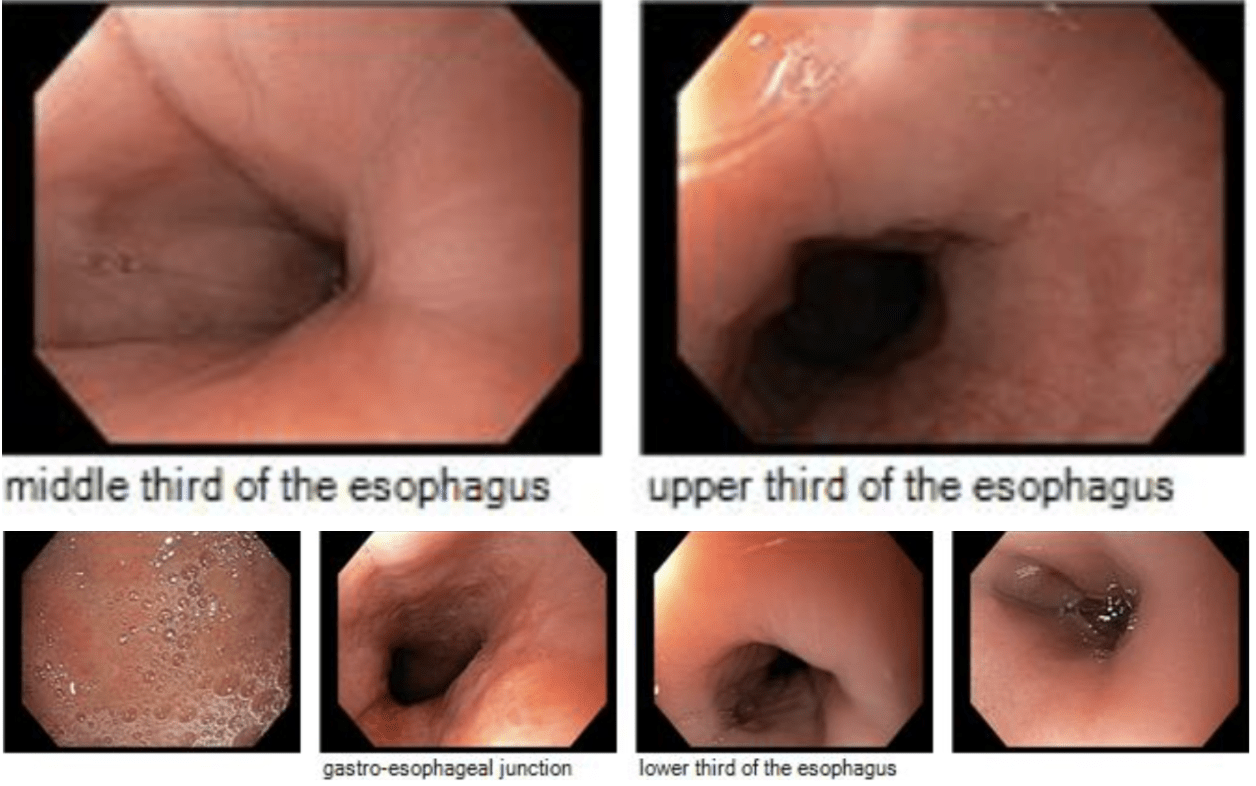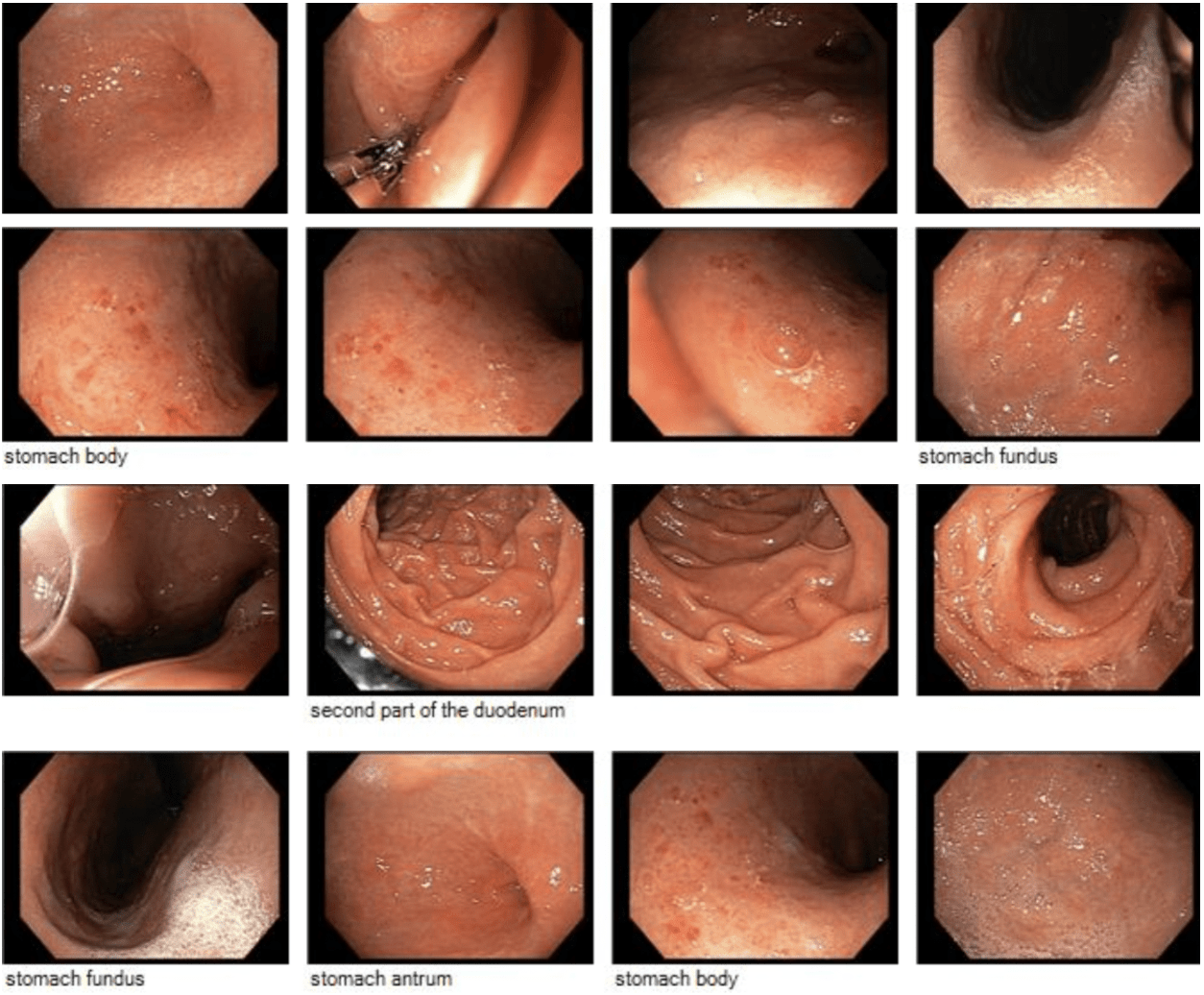Sunday Poster Session
Category: Stomach and Spleen
P2079 - Collagenous Gastritis Presenting with Progressive Dysphagia and Weight Loss in an Adult Male
Sunday, October 26, 2025
3:30 PM - 7:00 PM PDT
Location: Exhibit Hall

Mohammed S. Alani, MD (he/him/his)
Midwestern University
Goodyear, AZ
Presenting Author(s)
Mohammed Alani, MD1, Hayder Alamily, MD2, Mary Ayad, MD3, Marriam Al-Gashami, MS4, Layth Aljashaami, MD5
1Midwestern University, Goodyear, AZ; 2Department of Gastroenterology/University of Colorado, Aurora, CO; 3Eisenhower Health, Rancho Mirage, CA; 4Royal College of Surgeon in Ireland, Dublin, Dublin, Ireland; 5Arizona Digestive Health, Scottsdale, AZ
Introduction: Collagenous gastritis (CG) is a rare gastrointestinal disorder characterized by the deposition of subepithelial collagen and chronic inflammatory infiltration in the lamina propria of the gastric mucosa. While more commonly diagnosed in pediatric patients with abdominal pain and anemia, adult cases are increasingly recognized and often present with nonspecific upper gastrointestinal symptoms, frequently mimicking malignancy. Endoscopic findings are often unremarkable, making histologic biopsy essential for diagnosis.
Case Description/
Methods: A 64-year-old man presented with a 4-month history of progressive dysphagia to solids and liquids, early satiety, and a 15-pound unintentional weight loss. He denied abdominal pain, gastrointestinal bleeding, or changes in bowel habits. Examination was notable for mild temporal wasting. Laboratory evaluation revealed microcytic anemia (Hb 9.0 g/dL) consistent with iron deficiency.
Esophagogastroduodenoscopy (EGD) revealed grossly normal mucosa throughout the esophagus, stomach, and duodenum. Due to the concerning clinical picture, random biopsies were taken. Histopathologic evaluation revealed subepithelial collagen bands greater than 10 µm, accompanied by mononuclear cell infiltration, confirming a diagnosis of collagenous gastritis. The patient was treated with oral prednisone and iron supplementation, resulting in the resolution of dysphagia and stabilization of weight at 3-month follow-up.
Discussion: Collagenous gastritis is a rare and frequently underdiagnosed condition that should be considered in adults presenting with unexplained iron deficiency anemia, weight loss, and nonspecific upper GI symptoms. In contrast to children, adults may present with overlapping features of microscopic colitis or autoimmune conditions, and symptoms may mimic gastrointestinal malignancy. Endoscopic findings are often normal, highlighting the importance of obtaining gastric biopsies even in the absence of visual abnormalities. Treatment remains empirical, but corticosteroids and acid suppression therapy have been associated with symptomatic improvement. This case highlights the importance of maintaining a high index of suspicion and the value of random biopsies in the diagnostic workup of patients with unexplained upper gastrointestinal symptoms and anemia.

Figure: EGD of the Esophagus and GEJ

Figure: upper endoscopy of the stomach and the duodenum
Disclosures:
Mohammed Alani indicated no relevant financial relationships.
Hayder Alamily indicated no relevant financial relationships.
Mary Ayad indicated no relevant financial relationships.
Marriam Al-Gashami indicated no relevant financial relationships.
Layth Aljashaami indicated no relevant financial relationships.
Mohammed Alani, MD1, Hayder Alamily, MD2, Mary Ayad, MD3, Marriam Al-Gashami, MS4, Layth Aljashaami, MD5. P2079 - Collagenous Gastritis Presenting with Progressive Dysphagia and Weight Loss in an Adult Male, ACG 2025 Annual Scientific Meeting Abstracts. Phoenix, AZ: American College of Gastroenterology.
1Midwestern University, Goodyear, AZ; 2Department of Gastroenterology/University of Colorado, Aurora, CO; 3Eisenhower Health, Rancho Mirage, CA; 4Royal College of Surgeon in Ireland, Dublin, Dublin, Ireland; 5Arizona Digestive Health, Scottsdale, AZ
Introduction: Collagenous gastritis (CG) is a rare gastrointestinal disorder characterized by the deposition of subepithelial collagen and chronic inflammatory infiltration in the lamina propria of the gastric mucosa. While more commonly diagnosed in pediatric patients with abdominal pain and anemia, adult cases are increasingly recognized and often present with nonspecific upper gastrointestinal symptoms, frequently mimicking malignancy. Endoscopic findings are often unremarkable, making histologic biopsy essential for diagnosis.
Case Description/
Methods: A 64-year-old man presented with a 4-month history of progressive dysphagia to solids and liquids, early satiety, and a 15-pound unintentional weight loss. He denied abdominal pain, gastrointestinal bleeding, or changes in bowel habits. Examination was notable for mild temporal wasting. Laboratory evaluation revealed microcytic anemia (Hb 9.0 g/dL) consistent with iron deficiency.
Esophagogastroduodenoscopy (EGD) revealed grossly normal mucosa throughout the esophagus, stomach, and duodenum. Due to the concerning clinical picture, random biopsies were taken. Histopathologic evaluation revealed subepithelial collagen bands greater than 10 µm, accompanied by mononuclear cell infiltration, confirming a diagnosis of collagenous gastritis. The patient was treated with oral prednisone and iron supplementation, resulting in the resolution of dysphagia and stabilization of weight at 3-month follow-up.
Discussion: Collagenous gastritis is a rare and frequently underdiagnosed condition that should be considered in adults presenting with unexplained iron deficiency anemia, weight loss, and nonspecific upper GI symptoms. In contrast to children, adults may present with overlapping features of microscopic colitis or autoimmune conditions, and symptoms may mimic gastrointestinal malignancy. Endoscopic findings are often normal, highlighting the importance of obtaining gastric biopsies even in the absence of visual abnormalities. Treatment remains empirical, but corticosteroids and acid suppression therapy have been associated with symptomatic improvement. This case highlights the importance of maintaining a high index of suspicion and the value of random biopsies in the diagnostic workup of patients with unexplained upper gastrointestinal symptoms and anemia.

Figure: EGD of the Esophagus and GEJ

Figure: upper endoscopy of the stomach and the duodenum
Disclosures:
Mohammed Alani indicated no relevant financial relationships.
Hayder Alamily indicated no relevant financial relationships.
Mary Ayad indicated no relevant financial relationships.
Marriam Al-Gashami indicated no relevant financial relationships.
Layth Aljashaami indicated no relevant financial relationships.
Mohammed Alani, MD1, Hayder Alamily, MD2, Mary Ayad, MD3, Marriam Al-Gashami, MS4, Layth Aljashaami, MD5. P2079 - Collagenous Gastritis Presenting with Progressive Dysphagia and Weight Loss in an Adult Male, ACG 2025 Annual Scientific Meeting Abstracts. Phoenix, AZ: American College of Gastroenterology.
